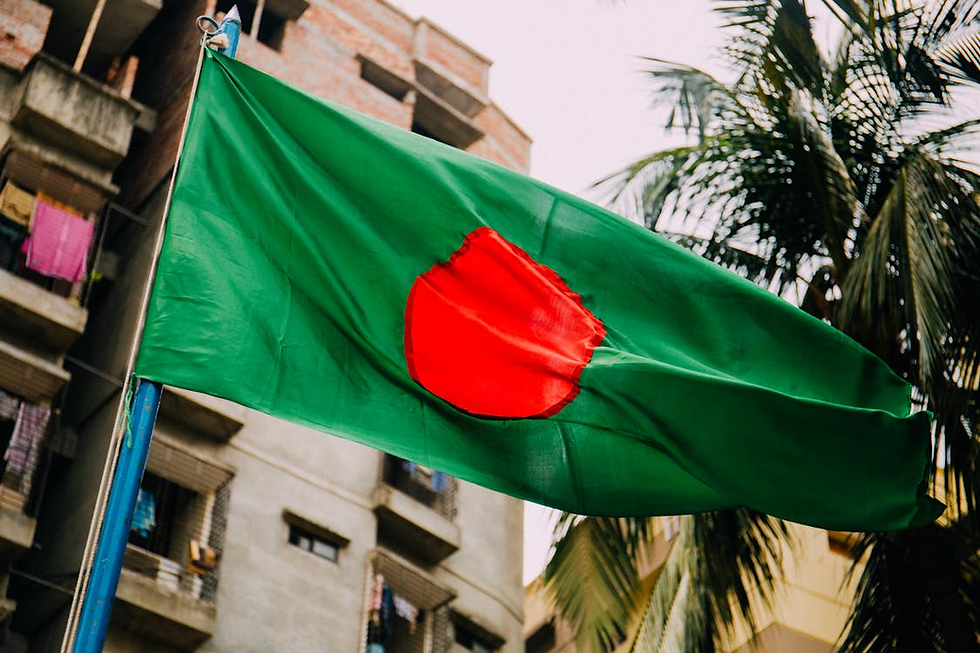Towards the Independence of West Papua: Papua Merdeka!
- Hafiza Samath

- Nov 24, 2020
- 4 min read
Updated: Dec 23, 2024
In 1949, Indonesia declared its independence from the Netherlands Government. Initially, the Dutch refused to transfer sovereignty of the western part of New Guinea - now known as West Papua - to Indonesia, claiming that West Papua should have its terrotarial boundaries match those of its predecessor: the Dutch East Indies.
After a dispute that lasted for more than ten years, West Papua was transferred to Indonesia based on the 1962 New York Agreement. This agreement would mean that, under the UN supervision, the West Papuans would have the opportunity to express their freedom of choice by "ascertaining" their will. However, during Suharto’s presidency, there were frequent clashes between Indonesian army and West Papuan activists. Suharto’s government made minimal attempts to consult West Papuan views, thus breaching the 1962 New York Agreement.
According to the research conducted by Wollonglong University in Australia, the West Papuan are facing slow motion genocide. Genocide is a crime as described by the Convention on the Prevention and Punishment of the Crime of Genocide adopted by United Nations General Assembly Resolution 260 (III) A on 9 December 1948.
The efforts to dismantle West Papua's cultures and eliminate its people took a darker turn, as documented in one Yale Law School study. The report shows that at least four of the five means of genocide in Article 2 of the ECHR Convention have been met. These abuses include: violence and rape against West Papuans, resource exploitation, relocation and destruction, forced labor, and displacement of the Papuan race by Indonesian settlers.
In addition to that, upon their arrival in West Papua, the Indonesian forces began exploiting the nation's infrastructure to gain wealth in Jakarta. West Papua is home to the world’s largest gold mines and second largest copper mine in the world, known as the Grasberg Mine. Grasberg is majority-owned by the American mining firm Freeport McMoRan. It has reserves worth an estimated $100 billion, and the company is Indonesia’s biggest taxpayer.
In 1967, Freeport was awarded the right to extract mineral wealth from the Grasberg site in West Papua. Recent census data shows Papua’s GDP per capita at $3,510, which is far higher than the Indonesian average of $2,452. However, Papua has the highest poverty rate in the country, nearly three times the national average. It also has the highest infant, child and maternal mortality rates in Indonesia, as well as the worst health indicators, and the poorest literacy rates.
Late last year, the Indonesian president, Joko Widodo, claimed he was willing to work towards a “better Papua”. However, human rights violations have increased since Widodo took power. According to Indonesia’s Commission for the Disappeared and Victims of Violence (Kontras), there were 1,200 incidents of harassment, beatings, torture and killings of Papuans by Indonesian security forces since his election in 2014. The country’s military has consistently denied any wrongdoing in Papua.
The current Indonesian Government has banned international media and human rights organisations from operating in West Papua. Experts claim this is to prevent the West Papuans from having contact with the outside world, but also to halt the spread of news about the West Papuans' treatment. Several UN officials are barred from accessing West Papua. Zeid Ra’ad Al Hussein, who is the former UN high commissioner for human rights, issued a statement of concern over Indonesia’s persistent hesitation in response to his desire to visit the territory. Similarly, The current high commissioner, Michelle Bachelet, has also been denied her request to enter West Papua. Local journalists are also facing severe threats.
As a member of the UN Human Rights Council, Indonesia has a duty to stop the injustices faced by the West Papuans and hold accountable those responsible within its government for recurring violent acts. If Indonesia fails to do so, then diplomatic pressure from the nations of the world will likely heighten.
The "Free West Papua" Movement hopes to be heard and supported internationally. The movement is spearheaded by Benny Wenda, a West Papuan independence leader who founded the campaign in 2004. He is now the Chairman of the United Liberation Movement for West Papua (ULMWP) and works tirelessly to free his people from Indonesian occupation. Reportedly as a result of his political views, Wenda was charged with crimes, which he claims were fabricated. This led to his escape to the United Kingdom.
Upon his arrival in the UK, he continued to lobby for West Papua's freedom. In 2007, Wenda met and shared West Papua’s story with David Cameron, who would later become Prime Minister of the United Kingdom. Ten years later, he presented a groundbreaking petition to the United Nations containing the signatures of over 1.8 million West Papuan people, comprising over 70% of the indigenous population. This petition provides firm evidence to the United Nations and governments all around the world of the will of the West Papuan people.
The voices of West Papuans and Benny Wenda are becoming increasingly heard. Those interested in learning more about their history and cause can do so via the "Free West Papuan" Movement’s official website.

_edited.png)




Comments